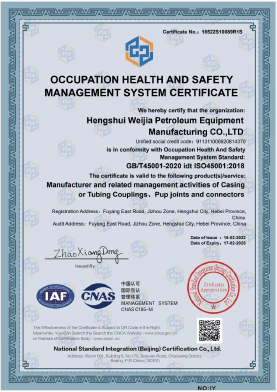- Afrikaans
- Albanian
- Amharic
- Arabic
- Armenian
- Azerbaijani
- Basque
- Belarusian
- Bengali
- Bosnian
- Bulgarian
- Catalan
- Cebuano
- Corsican
- Croatian
- Czech
- Danish
- Dutch
- English
- Esperanto
- Estonian
- Finnish
- French
- Frisian
- Galician
- Georgian
- German
- Greek
- Gujarati
- Haitian Creole
- hausa
- hawaiian
- Hebrew
- Hindi
- Miao
- Hungarian
- Icelandic
- igbo
- Indonesian
- irish
- Italian
- Japanese
- Javanese
- Kannada
- kazakh
- Khmer
- Rwandese
- Korean
- Kurdish
- Kyrgyz
- Lao
- Latin
- Latvian
- Lithuanian
- Luxembourgish
- Macedonian
- Malgashi
- Malay
- Malayalam
- Maltese
- Maori
- Marathi
- Mongolian
- Myanmar
- Nepali
- Norwegian
- Norwegian
- Occitan
- Pashto
- Persian
- Polish
- Portuguese
- Punjabi
- Romanian
- Russian
- Samoan
- Scottish Gaelic
- Serbian
- Sesotho
- Shona
- Sindhi
- Sinhala
- Slovak
- Slovenian
- Somali
- Spanish
- Sundanese
- Swahili
- Swedish
- Tagalog
- Tajik
- Tamil
- Tatar
- Telugu
- Thai
- Turkish
- Turkmen
- Ukrainian
- Urdu
- Uighur
- Uzbek
- Vietnamese
- Welsh
- Bantu
- Yiddish
- Yoruba
- Zulu
Exploring the Benefits and Applications of Stainless Steel Couplings in Various Industries
Understanding Stainless Steel Couplings Types, Applications, and Benefits
Stainless steel couplings are essential components in mechanical engineering, offering seamless connections between two shafts or tubes. The versatility and durability of stainless steel make these couplings ideal for various industries, from oil and gas to manufacturing and construction. This article delves into the types, applications, and advantages of stainless steel couplings, highlighting their significance in modern engineering.
Types of Stainless Steel Couplings
Stainless steel couplings are available in several types, each designed for specific applications. Some of the most common types include
1. Rigid Couplings These couplings provide a solid connection between two shafts, ensuring that both rotate in unison. They are typically used in applications where precise alignment is crucial, such as in conveyor systems and machinery where vibration or misalignment is minimal.
2. Flexible Couplings Unlike rigid couplings, flexible couplings allow for slight misalignments between shafts, accommodating dynamic conditions. This type is particularly useful in applications where movement or thermal expansion may occur, such as in pumps and variable-speed drives.
3. Spacer Couplings Spacer couplings are designed with a lengthened body, allowing for the accommodation of additional components, such as a gearbox or motor. They provide the benefits of both rigid and flexible couplings, making them suitable for complex mechanical systems.
4. Quick-Disconnect Couplings These couplings are engineered for rapid assembly and disassembly, facilitating maintenance and repairs. They are commonly used in applications where equipment must be regularly serviced, such as in hydraulic systems.
5. Sleeve Couplings Consisting of a cylindrical sleeve, these couplings connect two shafts through a single piece, enhancing torque transmission. Sleeve couplings are often employed in applications requiring minimal backlash.
Applications of Stainless Steel Couplings
Stainless steel couplings have a wide range of applications in various industries. Common uses include
- Industrial Machinery Couplings are integral in machines across manufacturing sectors, ensuring efficient operation and minimal downtime. - Pumping Systems In pump installations, couplings connect the motor shaft to the pump shaft, accommodating vibrations and thermal expansions effectively.
stainless steel coupling

- Automotive Engineering In vehicles, stainless steel couplings can be found in drive shafts and transmission systems, where durability and resistance to corrosion are critical.
- Marine Applications Stainless steel's resistance to seawater corrosion makes it ideal for marine equipment, including propeller shafts and rudder systems.
- Chemical Processing Couplings used in chemical plants must be resistant to various chemicals and temperatures, making stainless steel the preferred material
.Advantages of Stainless Steel Couplings
The use of stainless steel couplings offers multiple benefits
- Corrosion Resistance One of the primary advantages of stainless steel is its resistance to rust and corrosion, which extends the lifespan of coupling components, particularly in harsh environments.
- Strength and Durability Stainless steel provides high tensile strength and can withstand significant stress, making it suitable for heavy-duty applications.
- Versatility The various types of stainless steel couplings can accommodate different alignment conditions, torque levels, and operational environments, making them highly adaptable.
- Low Maintenance Due to their durable construction and resistance to wear, stainless steel couplings require less frequent maintenance compared to other materials.
- Cost-Effectiveness While the initial investment may be higher than other materials, the longevity and durability of stainless steel couplings often lead to lower total cost of ownership.
In conclusion, stainless steel couplings are vital components in many industrial systems, providing reliable and durable connections. With their diverse types and wide-ranging applications, they play a crucial role in enhancing the performance and efficiency of mechanical systems across industries. As technology advances, the demand for high-quality stainless steel couplings will continue to grow, reinforcing their importance in modern engineering solutions.
-
Tubing Pup Joints: Essential Components for Oil and Gas OperationsNewsJul.10,2025
-
Pup Joints: Essential Components for Reliable Drilling OperationsNewsJul.10,2025
-
Pipe Couplings: Connecting Your World EfficientlyNewsJul.10,2025
-
Mastering Oilfield Operations with Quality Tubing and CasingNewsJul.10,2025
-
High-Quality Casing Couplings for Every NeedNewsJul.10,2025
-
Boost Your Drilling Efficiency with Premium Crossover Tools & Seating NipplesNewsJul.10,2025







